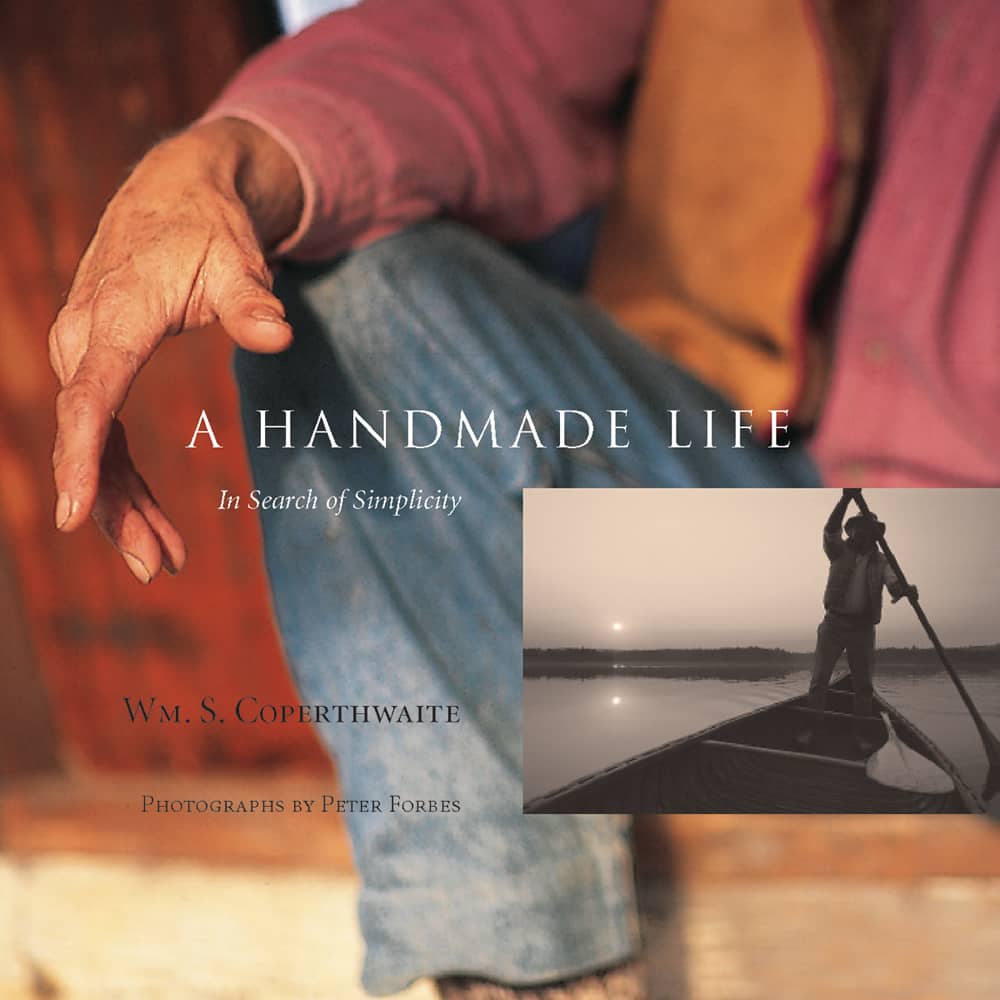A Handmade Life
In Search of Simplicity
Paperback
$30.00
William Coperthwaite is a teacher, builder, designer, and writer who for many years hasexplored the possibilities of true simplicity on a homestead on the north coast of Maine. In the spirit of Henry David Thoreau, Emily Dickinson, and Helen and Scott Nearing, Coperthwaite has fashioned a livelihood of integrity and completeness-buying almost nothing, providing for his own needs, and serving as a guide and companion to hundreds of apprentices drawn to his unique way of being.
A Handmade Life carries Coperthwaite’s ongoing experiments with hand tools, hand-grown and gathered food, and handmade shelter, clothing, and furnishings out into the world to challenge and inspire. His writing is both philosophical and practical, exploring themes of beauty, work, education, and design while giving instruction on the hand-crafting of the necessities of life. Richly illustrated with luminous color photographs by Peter Forbes, the book is a moving and inspirational testament to a new practice of old ways of life.
Reviews and Praise
Publishers Weekly-
Serene and thoughtful, this rambling scrapbook by Maine native and yurt-house builder Coperthwaite provides a vision of a life lived simply and self-sufficiently. From violence to education to how to build a "democratic chair" or make an axe, Coperthwaite covers an abundance of topics as he describes his version of a "handmade life" and explains why such a life is desirable. Never quite didactic, Coperthwaite meditates on topics-such as the idea of employment as exploitation-more than he preaches about them, moving glibly from idea to disconnected idea. A recipe for "a bread so good to both the palate and to health that a diet of bread and water would be a delight" is placed next to an anecdote about a young Eskimo girl named Maggie, for example. And the author's own poems, along with poems by D.H. Lawrence and Emily Dickinson, intersperse the narrative. Peter Forbes' engaging color photographs illustrate Coperthwaite's concepts-no easy feat given their breadth and diversity. 67 color photos, 10 b&w illustrations. (review refers to an earlier edition of the book)
More Reviews and Praise
"This book, a richly textured exploration of Bill Coperthwaite's work and thought, encourages us to take the lessons of his life to heart. Each of us has the potential to craft our own lives with our own hands--actively, joyfully, and nonviolently, drawing upon the wisdom of our ancestors, striving for justice in the present, and fulfilling our obligations to those who will inherit our legacy."--John Saltmarsh (review refers to an earlier edition)







